MAPK Signaling

Activated MAPKs transduce the phosphorylation and activation of MAPK-activated protein kinases (MAPKAPKs), e.g. RSK, MSK, or MNK family, and MK2/3/5. There are three main MAPK families, signal-regulated kinase 1 and 2 (Erk1/2 or p44/42), the c-Jun N-terminal kinases 1-3 (JNK1-3)/ stress activated protein kinases (SAPK1A, 1B, 1C), the p38 isoforms (p38α, β, γ, and δ). ERK signaling is involved in cell division, migration and survival. p38 MAPK and JNK/SAPK pathways are activated by cellular stress. The p38 MAPK pathway regulates cell motility, transcription, and chromatin remodeling. JNK/SAPK signaling affects apoptosis and inflammation. Dysregulation of MAPK pathway results in tumorgenesis and other pathological conditions.
-
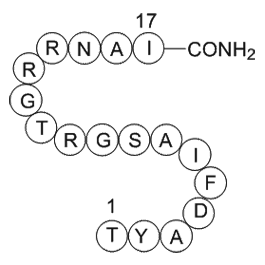 A1117 PKA inhibitor fragment (6-22) amideSummary: PKA inhibitor
A1117 PKA inhibitor fragment (6-22) amideSummary: PKA inhibitor -
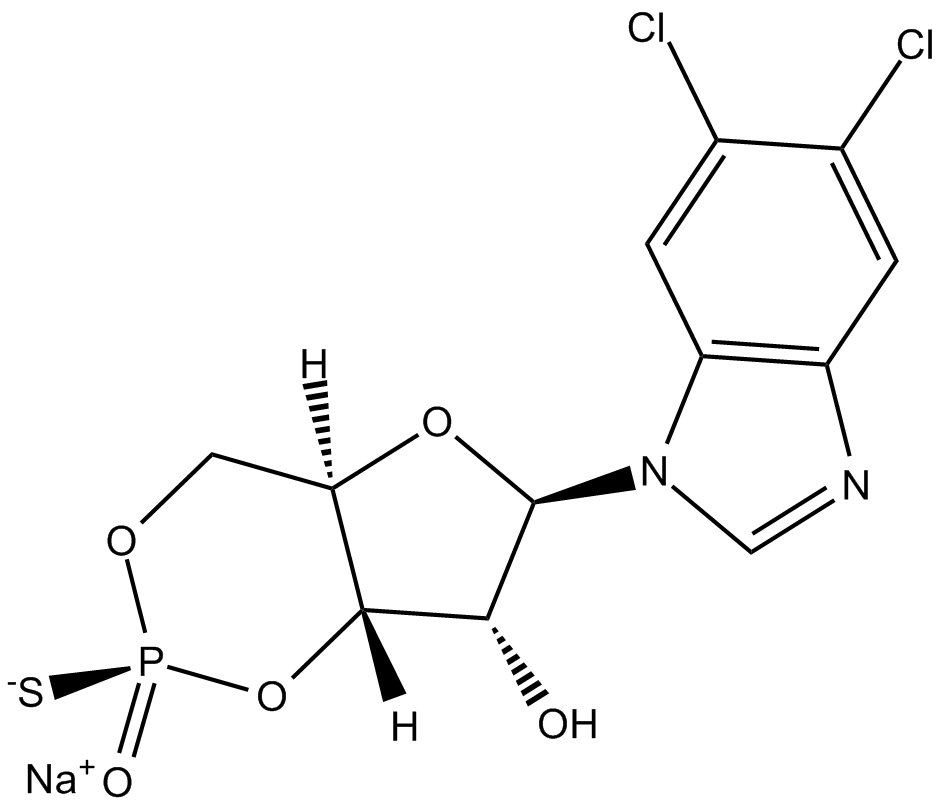 C3728 Sp-5,6-dichloro-cBIMPS (sodium salt)Summary: PKA activator
C3728 Sp-5,6-dichloro-cBIMPS (sodium salt)Summary: PKA activator -
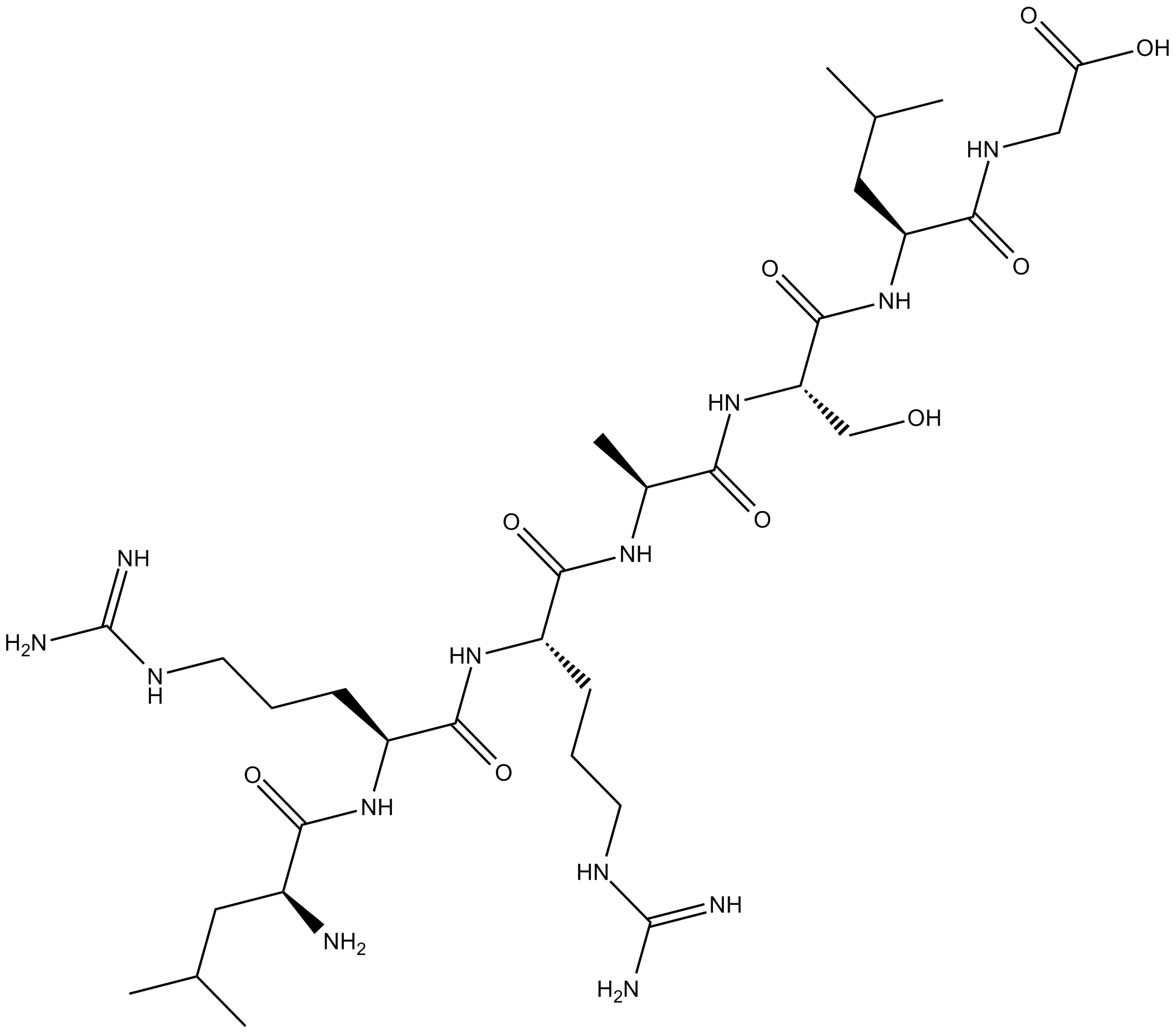 C4308 KemptideSummary: substrate for cAMP-dependent protein kinase (PKA)
C4308 KemptideSummary: substrate for cAMP-dependent protein kinase (PKA) -
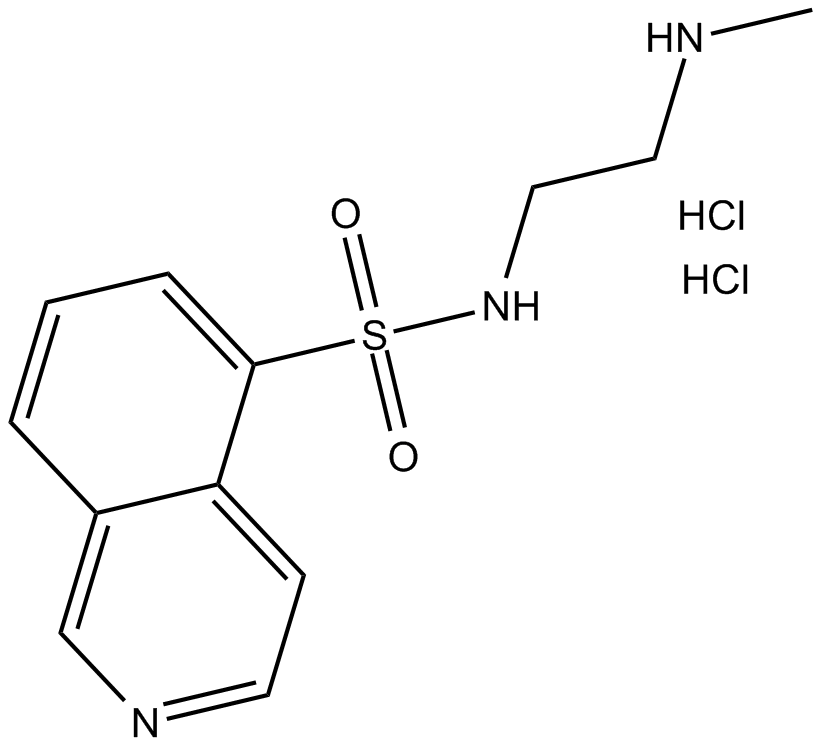 C4683 H-8 (hydrochloride)Summary: potent inhibitor of PKA and PKG
C4683 H-8 (hydrochloride)Summary: potent inhibitor of PKA and PKG -
 C5489 8-CPT-Cyclic AMP (sodium salt)Summary: lipophilic activator of the cyclic-AMP- and cyclic-GMP-dependent protein kinases, PKA and PKG
C5489 8-CPT-Cyclic AMP (sodium salt)Summary: lipophilic activator of the cyclic-AMP- and cyclic-GMP-dependent protein kinases, PKA and PKG -
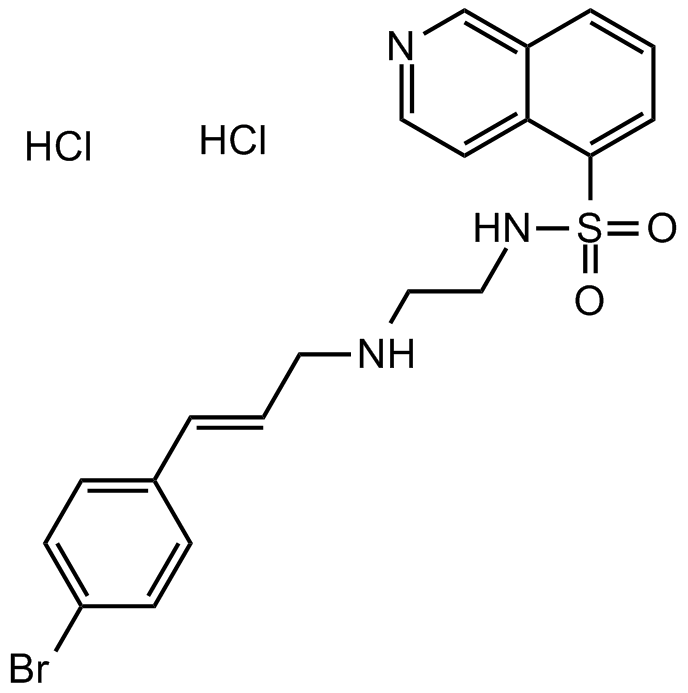 B2190 H 89 2HCl3 CitationSummary: Potent PKA inhibitor
B2190 H 89 2HCl3 CitationSummary: Potent PKA inhibitor -
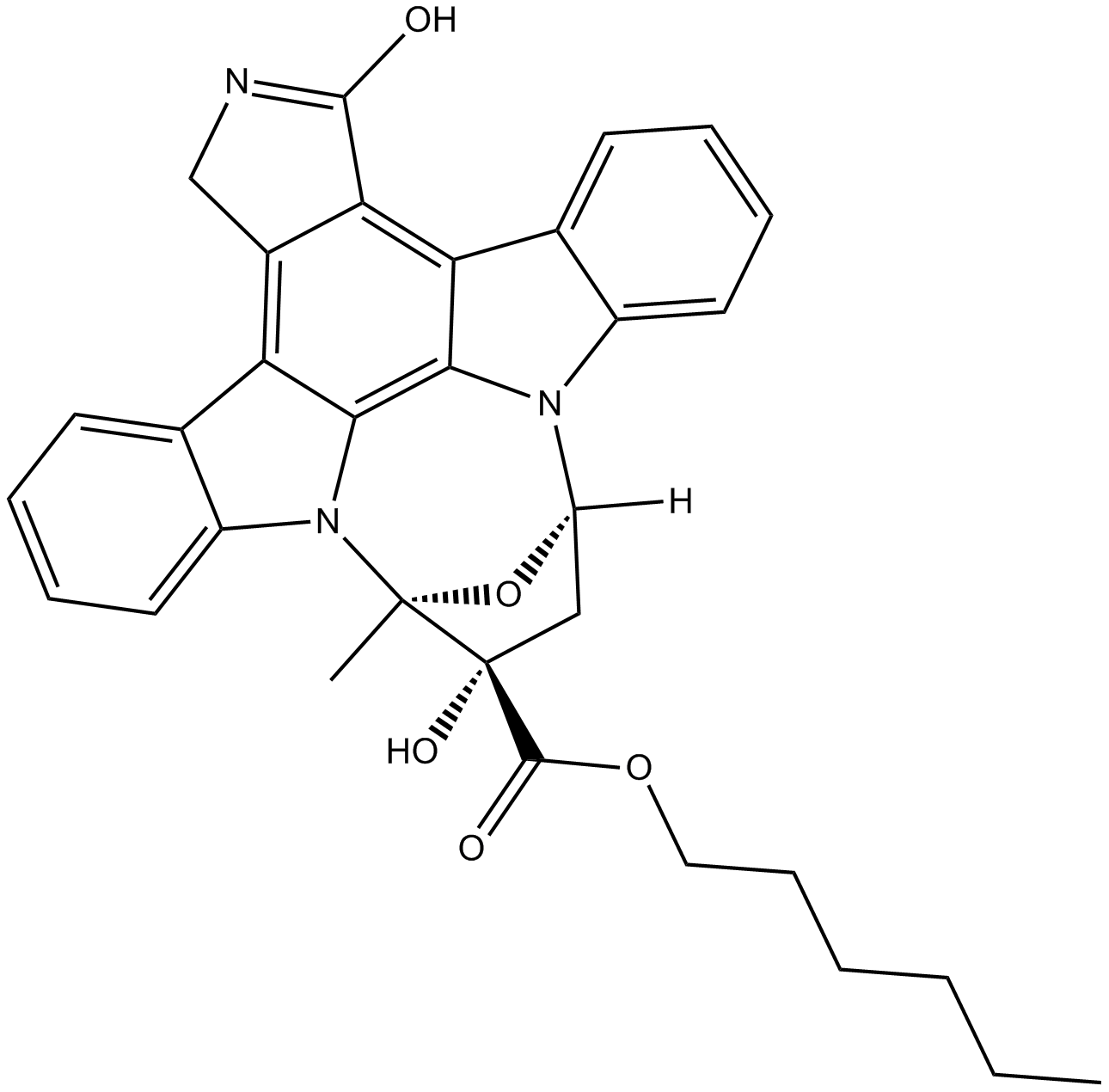 B9002 KT 5720Summary: protein kinase A inhibitor, potent and selective
B9002 KT 5720Summary: protein kinase A inhibitor, potent and selective -
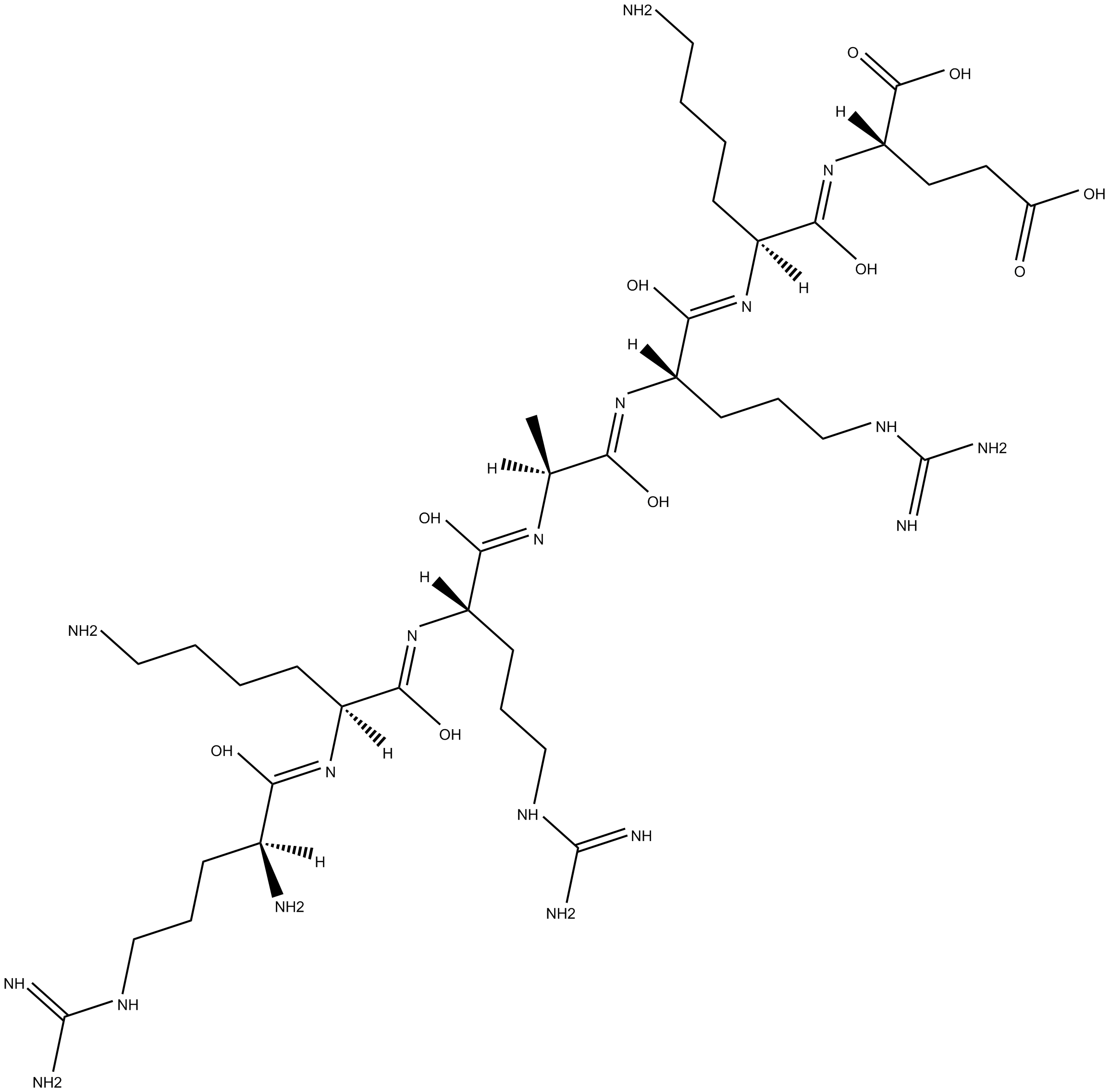 B9006 cGMP Dependent Kinase Inhibitor PeptideSummary: cGMP-dependent protein kinase (PKG) inhibitor
B9006 cGMP Dependent Kinase Inhibitor PeptideSummary: cGMP-dependent protein kinase (PKG) inhibitor -
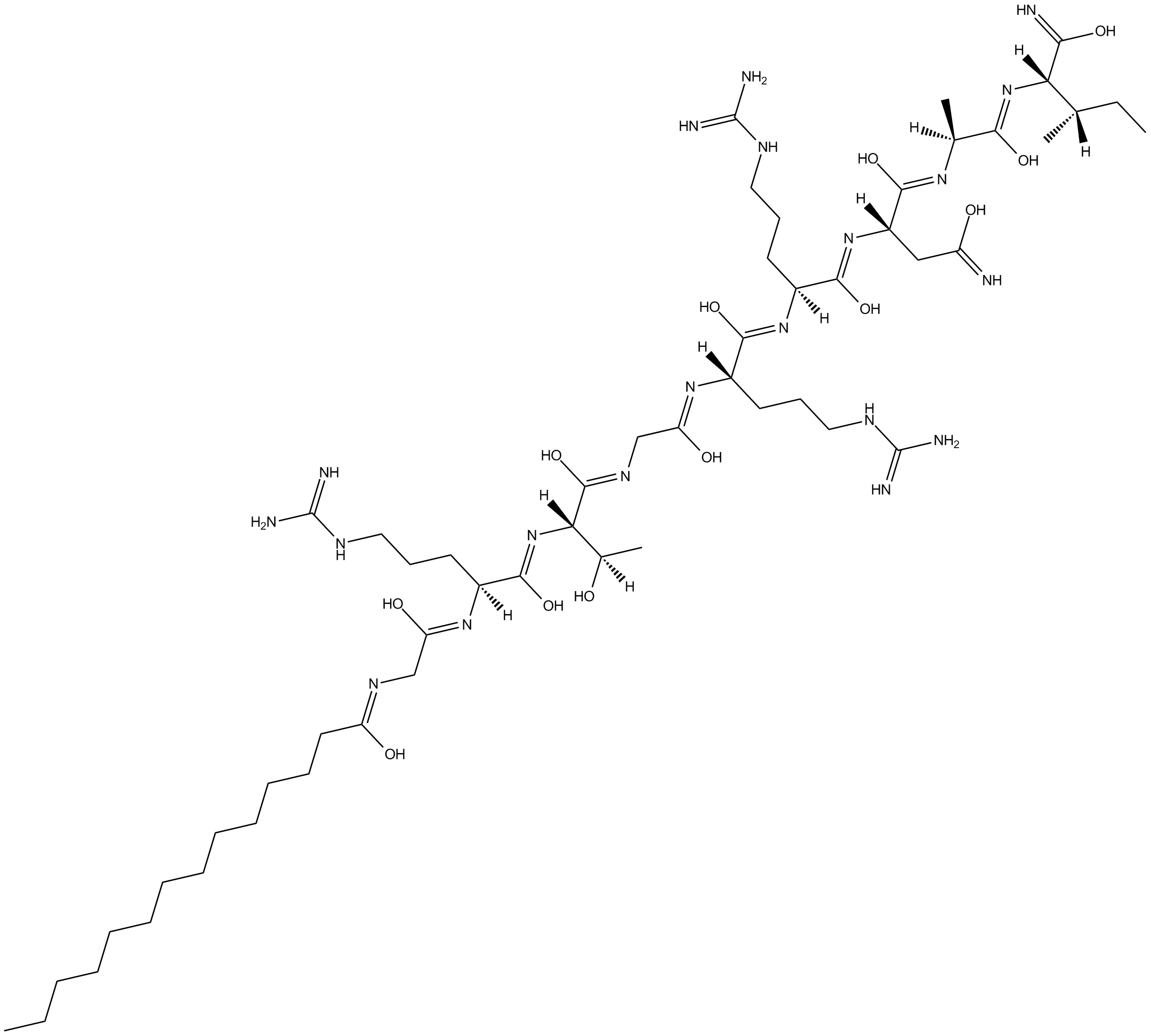 B9009 PKI 14-22 amide, myristoylatedSummary: PKA inhibitor
B9009 PKI 14-22 amide, myristoylatedSummary: PKA inhibitor

